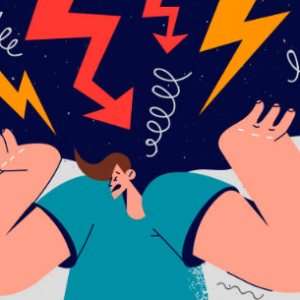Usually people use anger as a dangerous or bad mood, restraint and to avoid. In fact, anger can be positive.
First, anger represents awareness. When the anger rises, the parties will realize that their interests have been violated, their safety has been threatened, and their value, ability and credibility as an independent individual have been denied or mocked. In order to maintain the independence and dignity of the individual, this ability of awareness is very necessary.
Second, anger represents action. Emotions are expressions of energy, and anger is one of the most valuable emotions available. Anger often leads to action, and although sometimes reckless, in many cases the response is necessary and timely. We should not give up eating for fear of choking and emphasize only the negative effects while ignoring the positive effects of anger. For example, in the battlefield and the competition, anger has a powerful role in stimulating morale, shame and courage, is anger in the daily work and study to stimulate the performance of progress.
Third, anger is a transmission of information. Some people often equate strong self-control with anger, but this is a misunderstanding. Good self-control does not mean that you will not express your attitude and convey information. The kind of people who can’t see their emotions are often the most confusing and difficult to understand. If BECAUSE DO not understand the other side’s attitude and position and stray into its minefield, this responsibility is afraid NOT one party should bear alone.
In addition, anger is a sign that a person has individual autonomy and that interpersonal boundaries are clear.
Many parents have a very negative view of their children expressing emotions to them, especially anger. This is based on a misunderstanding. When children express their emotions, they usually choose the people they trust the most, the safest environment. Children are willing to express their emotions in front of their parents, which is the performance of their trust in their parents. If you do not understand this, and take your child’s emotional expression as a sign of disrespect for you, or take your child’s words too seriously, then you are really doing your child wrong.
Parent-child relationship good performance, not calm, but like a tall tree, can withstand the wind and rain, always stand safely, let the child feel at ease, at ease.
The reason why anger is criticized is that people mistakenly confuse the expression of anger with anger itself.
As a kind of emotion, there is no right or wrong way to express anger. There are different levels of emotion intensity, from unhappiness to rage, and the level of this subdivision and concretization ability is a person’s emotional granularity, which is an indicator of the level of emotional intelligence. If we can detect and communicate anger at a relatively minor level, we can often avoid damaging high-level anger. This is the social skill of showing your attitude and boundaries in a timely manner, which is a sign of maturity and confidence.
As for anger, there are some extreme phenomena in life, one is the childish expression of anger easily, the other is the lifeless expression of not daring to express or even have emotions. The former is more common in drowning families, while the latter is more from authoritarian families. These two family education methods are very unfavorable to the psychological growth and future development of children, which is worth parents thinking about.





